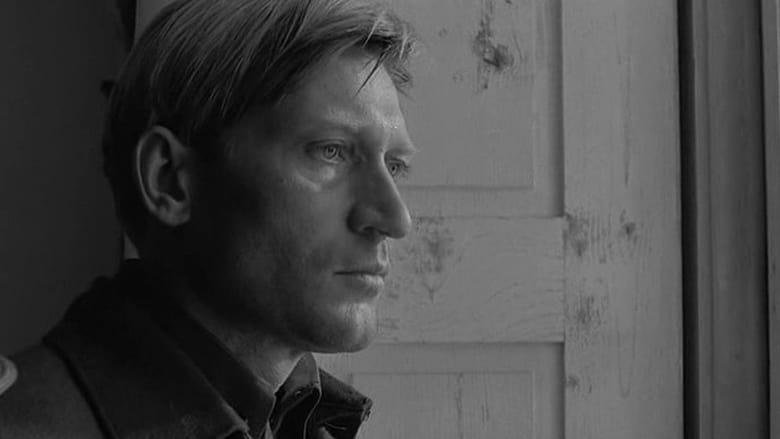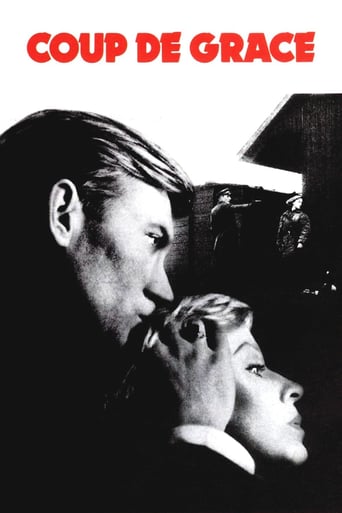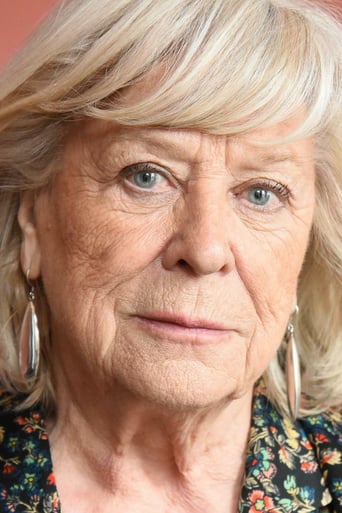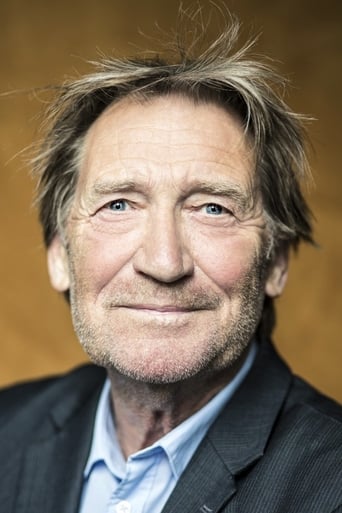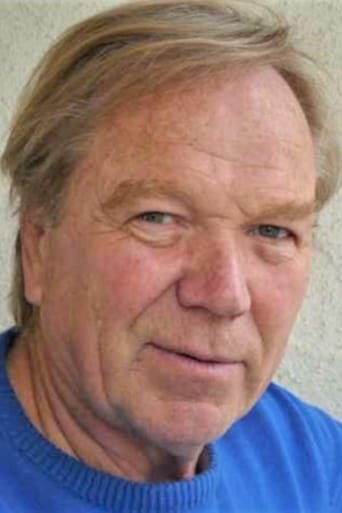Coup de Grâce (1978)
A countess loves her brother's Prussian-officer friend in the 1919 Baltic area.
Watch Trailer
Free Trial Channels
Cast


Reviews
What a freaking movie. So many twists and turns. Absolutely intense from start to finish.
Fanciful, disturbing, and wildly original, it announces the arrival of a fresh, bold voice in American cinema.
It's the kind of movie you'll want to see a second time with someone who hasn't seen it yet, to remember what it was like to watch it for the first time.
It's a good bad... and worth a popcorn matinée. While it's easy to lament what could have been...
"Der Fangschuß" or "Coup de grâce" is a French/German co-production from 1976 so this (predominantly) German-language film has its 40th anniversary this year. The director of these almost 100 minutes is Volker Schlöndorff and it is an adaptation of a novel by Marguerite Yourcenar. One of the writers was Schlöndorff's wife Margarethe von Trotta, who also plays the female main character. It is one of von Trotta's last works before the camera before she dedicated her career entirely to filmmaking herself. This is a black-and-white movie, which really was not too common anymore for the 1970s. It is basically the story of two characters only, the male main character, an army officer played by the young Matthias Habich, and the female main character, the woman falling in love with him played by von Trotta. The military background in terms of profession of the male protagonist plays a major role too as it basically sets the setting for the film.That's really all that needs to be said about it I guess. The supporting characters (including Carrière, with whom Schlöndorff worked a lot) aren't that interesting I must say and it is all about the duo of protagonists. Sadly, they are both really unlike able which makes it difficult to get emotionally involved with the film as I myself simply did not care for them at all and I never really wanted them happy, especially Habich's character. In one scene says, she would be the last woman on Earth he wants to be with. In the next scene he acts as if he truly loves her. He is a cold-blooded killer and has really no likable features at all. Of course, it is viable to take the approach to depict a realistic idea and make the audience wonder why she would fall for him, but I guess it was that she is easily impressed by power and violence and always wants what she cannot have until she maybe can even have it. Not exactly positive character traits either and I am as unimpressed by von Trotta as an actress as I am by her as a filmmaker judging from what I have seen so far.The overall outcome is that this is a very underwhelming watch. I never thought of Schlöndorff (despite him having an Oscar unlike the others) be on par with the great German filmmakers of the 1970s: Herzog, Fassbinder, Wenders and this film just solidifies my opinion and perception that he is inferior. Maybe I am also a bit biased as the war depicted in this movie and political climate and time (19th century) were never historical aspects I had interest in. Then again, you could also say that this film could have sparkled my interest if it had been good, but it did no such thing. Finally, I don't recommend the watch and it's really underwhelming, even for a Schlöndorff film. Watch something else instead.
Volker Schlöndorff is one of the most overrated directors of the New German Cinema school, and that shows in some of his most celebrated films, including THE TIN DRUM. His adaptions of literature seldom reach beyond mere illustration and even so Schlöndorff never seems to know what the point of his stories actually is.DER FANGSCHUSS/COUP DE GRACE is one of his more watchable works, which might be largely due the fine, atmospheric B/W photography. But compared to Margarete Yourcenar's novel Schlöndorff's inability to adopt a proper point of view becomes apparent. The novel is told in first person by the main character Erich von Lhomond; yet in Schlöndorff's version it is never clear if it his or Sophie's story. The erotic obsession Sophie has for Erich, mixed with political adversity, which is so crucial for the story is almost completely missing in the film. It is rather supposed than being actually shown and acted out. Unless you have not read the book you cannot measure Schlöndorff's failure to convey what's actually going on between these two.The greatest flaw is the miscasting of the director's wife Margarethe von Trotta, who is not only a mediocre actress but who is visibly at least 15 years too old for her character, leaving it pointless and unbelievable. Trotta sucks so badly in her part that it makes the whole film a pain to watch every time she appears on screen.One of the few truly enjoyable moments is the final screen appearance of legendary actress and Pabst veteran Valeska Gert (THE JOYLESS STREET) in an eccentric supporting part - even though her black dyed hair, heavy make-up and curious antics make her hardly a convincing Baltic German landowner lady of the early 20th century.DER FANGSCHUSS is a pretentious misunderstanding, like most of Schlöndorff's work.
I love Der Fangschuss (I think of the title in German, rather than Coup de Grace because the movie is told in German - there's nothing French about it in style, direction, language or locale). I also have a very different interpretation of the movie and different sympathies toward the characters than the author of the other (fine) review - and probably different from the director/lead actress who are generally involved in movies with a quite leftist slant.The three Baltic countries, Estonia, Latvia, Lithuania, had all been occupied by and incorporated in Russia - and any nationalist movements were put down by the Czars - for at least a hundred years before the Russian Revolution in 1917. During this time, wealthy German aristocrats were allowed by the Russian government to own and occupy great houses on agricultural estates (Junker families). The vast estates had once operated somewhat like southern plantations in the U.S., but like those plantations, were transformed by the liberation of the serfs in the 1860s. Thus, for over half a century by the time our movie begins, the great farms had been operated like any other enterprise - with the vast numbers of agricultural workers free to stay or go. With the Revolution and Russia's consequent withdrawal from World War I, there was of course chaos throughout Russia - including a civil war that lasted until 1921. During this time, the Bolsheviks (the radical Communists) sought to ensure that the Baltic countries remained subjugated - now as part of a now Soviet Union - and the nationalist Lithuanians, Latvians and Estonians sought to use the chaos in Russia to break away and resume the independence that was once theirs. During this conflict, the German Junker families sided with the nationalists (who also wished to install democracy) rather than the Bolsheviks. Thus, even as the aristocratic Germans returned to their homes from the most horrifying war that had ever existed, they were involuntarily forced into a new war for their very homes by the besieging Bolsheviks who sought to maintain the status quo absorption of the Baltic countries in a tyrannical Russia. The German aristocrats made common cause with the Baltic democrats to defend the homes in which they and their families had lived for generations.This movie concerns two such German officers - both of whom grew up in this area of Latvia - and have been friends since they were children. They have grown particularly close in four years of fighting on the western front in W.W.I. Now they are returning home - as they arrive at night, they see artillery shells from Bolshevik mortar bursting over homes. One of the officers is Konrad -whose home remains and whose aunt and sister live there. His best friend who has traveled with him for over a thousand miles from the western front is Erich, a courageous and heroic figure who knows his home was already seized. Erich is a handsome, romantic, melancholy, artistic and thoughtful figure, a veritable Siegfried, who describes his willingness to fight for Konrad's home -- rather than live comfortably in Paris or Germany --as part of his romantic addiction to "lost causes". The defenders of Konrad's home consist not only of the servants of the estate, but of native Latvian and Lithuanian soldiers from the area, as well as some Russian White officers opposed to the Bolsheviks -- some of whom want the return of the Czar and some of whom want the return of Kerensky, the democratic leader who began the Revolution that toppled the Czar but fell six months later in the October Bolshevik Revolution.Konrad's sister, Sophie, is a lonely romantic who is also an immature and trendy political dilettante who believes it romantic to flirt with the local Bolsheviks whose forces attack her home each night. Thus, she has formed a relationship with a dreary Bolshevik tailor in the town. This must all be kept secret from the dozens of soldiers who occupy her home to defend her and her aunt. However, when Erich arrives with her brother, she forms a mad attachment and throws herself at the dutiful Erich who is attempting to save all their lives by directing the defense of the house against the siege. I won't reveal any more of the plot - or the increasing madness and promiscuity of the sister. The movie reveals the trendiness of the sister as leftist political dilettante - who may display personal courage, but brings disaster to all she touches - as well as the difficult path of a romantic conservative figure who follows duty to friend and duty to oppose barbarism -- even when it means personal sacrifice and difficult choices. History shows that the Bolsheviks were defeated, and independence gained, by the combination of the Baltic peoples, the Finnish General Mannerheim (who saw the threat to Finland from the neighboring Bolsheviks - who would attack again in 1939) and the German aristocrats. As a result, the Treaty of Versailles recognized the independence of Latvia, Lithuania and Estonia - independent sovereign and democratic countries until overrun in 1939/40 by the Soviet Union pursuant to the Nazi-Soviet Pact. They regained their independence in 1989-91 and are about to join the European Union. Without the difficult and successful fight for independence, these countries would not have had the recent memory of independence to console them during the subsequent half century's suppression of liberties - and would perhaps not have struggled so greatly to regain their liberty.The movie is however primarily a character study - shot in black and white - sometimes a little difficult to follow due to the rapidity with which they identify characters -- but well worth it. It is fascinating.
**Film plot and ending analyzed**The Baltic states in 1919 are witnessed two years after the Russian revolution, the country is torn by civil war between the Whites and the Reds and the old Prussian nobility that realizes that this is no longer Germany. Konrad and his volunteer corps have withdrawn from Reval to his parents' castle in Kratovice determined to defend the outdated feudal system. Konrad's sister Sophie maintains friendly relations with the rebels, especially Gregori Loew, the son of the Jewish village tailor. Although she shares his views, she lacks the strength to tear herself out of her surroundings. She falls more and more deeply in love with Konrad's friend Erich von Lhomond, a dashing gentleman rider who "likes to fight a losing battle" because he would only be an insignificant figure in ordinary life. He is not particularly interested in women and is attracted much more strongly to Konrad than to Sophie. He brutally rejects her love but responds more and more jealously as she throws herself headlong into various affairs with his comrades in the corps. Things come to a head at Christmas: when Sophie kisses young Volkmar von Plessen, who wants to marry her, Erich slaps her in front of her aunt and the other officers. She only admits to her love once more. Erich orders her to wait until he returns from a foray against the Bolsheviks. However, Sophie has in the meantime learned the truth about Erich von Lhomond and her brother. She sharply demands an answer from her beloved and then leaves the castle to join Gregori Loew and his band of rebels. The situation in the Baltic has become hopeless for Lhomond and his fighters. Konrad has been killed in one of the last battles and the remainder of his troop decides to head for Germany. Sophie and her comrades are captured by Erich in a battle for a farm during which Gregori Loew is killed. The other rebels are shot at Lhomond's command. Sophie demands that Erich execute her himself. Volker Schlöndorff had first come across Marguerite Yourcenar's novel "Der Fangschuss" in 1965 while working on his film TÖRLESS. Even then, he had been attracted by the idea of making a film based on the novel by an author who had become famous for her historical novels and was the only woman in the Académie Française. FANGSCHUSS follows on from TÖRLESS in both form and content, both films displaying the same respect and caution towards the literary original; both are produced in black-and-white and both are basically about suppressed sexuality and reactionary behaviour with the aim of revealing sadomasochistic relations and fascist tendencies. Volker Schlöndorff has by no means left the political arena to concentrate on a historical subject or purely human problem in this film, which was produced one year after the sensational success of DIE VERLORENE EHRE DER KATHARINA BLUM; the "problematical relationship between men and women" (Volker Schlöndorff) portrayed by the film in the form of a highly dramatic affair is closely related to the social and historical background of a struggle between supporters of the old order and the supporters of new social ideas. Sophie is not only driven to join the rebels by Erich's emotional coldness and the humiliating realization that he used her to come closer to her brother, but also by her revulsion of war and the male solidarity among the officers, as well as by the realization that they need the war "in order to live out their lives" and satisfy their secret cravings. Schlöndorff clearly contrasts the scenes showing the private relations and strains between the protagonists with scenes showing the fight against the rebels and the shooting of prisoners. The leading actors and particularly Margarethe von Trotta have prevented the film from fulfilling its intention of telling the "story of an act of humiliation ending in revolt" (Schlöndorff). Margarethe von Trotta's Sophie remains a shadowy figure capable of expressing her anger and defiance at Erich's cool remoteness, but she fails to display the emancipation of a woman who sees through the men's military madness and rebels against it. Sophie's revolt is emotional, not political. However, the subject of Sophie's desire, the handsome Erich, is also a somewhat pale figure and the erotic triangle between Erich, Konrad and Sophie is created in the viewer's imagination rather than in the reality of the film. Schlöndorff's film thus lacks the dramatic core intended by the director, but he compensates this shortcoming with dense atmospheric images of the barren snowscape and the castle's rundown interiors. With their black-and-white shading and their grey tones reminiscent of the films produced by Jean-Pierre Melville, Schlöndorff's "first mentor" to whom this film is dedicated, these images evoke a decaying, dying world in which real, open relations between people have become impossible. Despite the weakpoints in the screenplay and in the handling of the actors, this gives DER FANGSCHUSS a dramatic presence making the historical situation transparent to the present on at least an emotional level if not on an intellectual plane. It is a powerful film... full of noise and furor...

